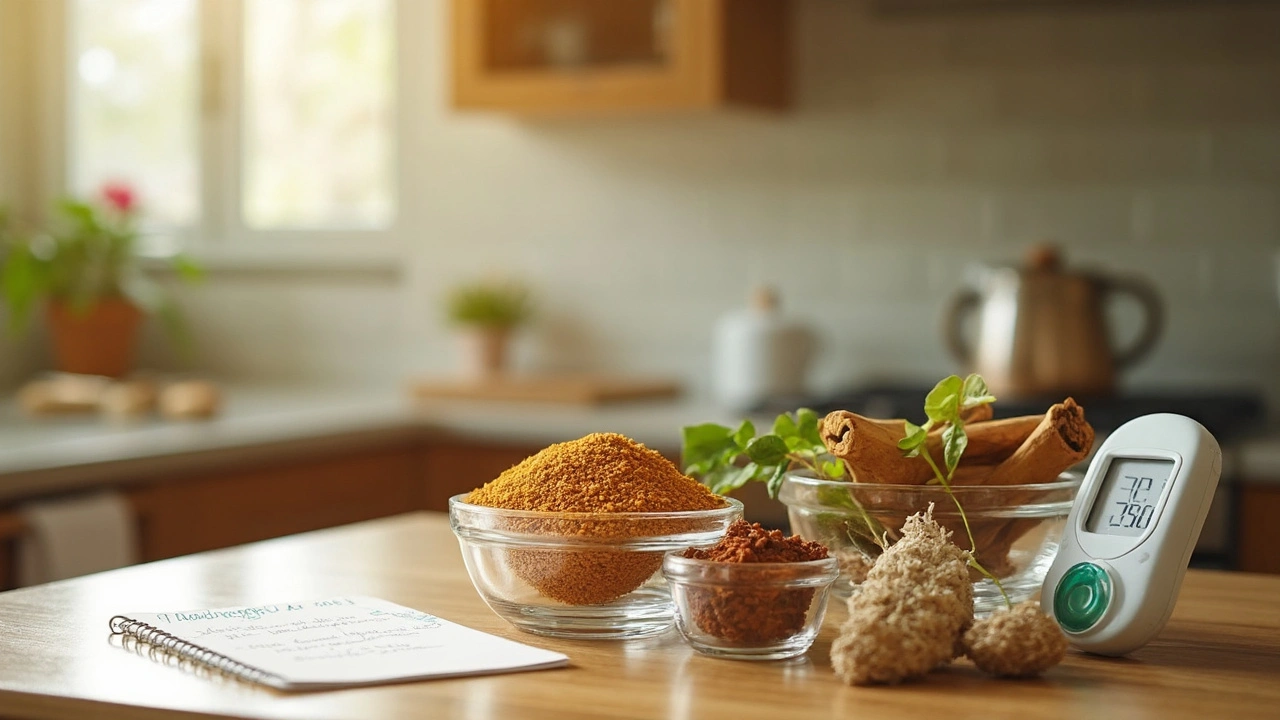cinnamon – what it is and why it matters for your health
When you walk past the spice aisle, cinnamon’s warm scent usually grabs attention. But it’s not just a flavor booster – it’s a plant‑derived spice that can actually help your body. In this guide we’ll break down the real benefits, safe ways to add it to meals, and the things you should watch out for.
Top health perks of cinnamon
Research shows cinnamon can do more than make oatmeal taste good. Its main active compounds, called cinnamaldehyde and polyphenols, have antioxidant and anti‑inflammatory properties. That means they help protect cells from damage and calm inflammation, which is linked to many chronic conditions.
One of the biggest headlines is cinnamon’s effect on blood sugar. Several studies found that a daily dose of 1–2 teaspoons of cinnamon can improve insulin sensitivity and lower post‑meal glucose spikes. If you have pre‑diabetes or just want steadier energy, sprinkling a little cinnamon on breakfast might be worthwhile.
Heart health gets a boost, too. Cinnamon can modestly lower LDL (bad) cholesterol and triglycerides while raising HDL (good) cholesterol. The changes aren’t dramatic, but combined with a balanced diet they add up over time.
How to use cinnamon safely
Most people can enjoy cinnamon without a problem, but there are two main types: Ceylon (also called “true” cinnamon) and Cassia (the common cheaper variety). Cassia contains higher levels of coumarin, a compound that can stress the liver if you consume a lot over months. To stay on the safe side, stick to about ½ teaspoon of Cassia per day or switch to Ceylon if you plan to use it regularly.
Here are a few easy ways to add cinnamon to your day:
- Stir a pinch into your coffee, tea, or smoothie for a warm kick.
- Mix with oats, yogurt, or cottage cheese for a quick breakfast.
- Use in savory dishes like stews, chili, or roasted vegetables – a dash pairs well with cumin and paprika.
- Bake into muffins, banana bread, or pumpkin desserts for a sweet, aromatic flavor.
If you prefer supplements, look for capsules that specify Ceylon cinnamon and list the exact amount of cinnamaldehyde. Start with the lowest dose and see how you feel before increasing.
Watch out for side effects. Too much Cassia cinnamon can cause stomach upset, low blood pressure, or liver irritation because of coumarin. Pregnant women should keep intake below ¼ teaspoon per day, as high amounts might affect hormone balance.
Bottom line: cinnamon is a tasty spice with real health perks. Use it in moderation, choose Ceylon when you can, and pair it with a balanced diet for the best results.

Herbal Solutions for Insulin Resistance: Cinnamon, Fenugreek & Gymnema Backed by Science
Herbal Strategies for Insulin Resistance Backed by Science dives deep into the latest research on cinnamon, fenugreek, and gymnema, and how these herbs can support glucose metabolism. Discover the most compelling facts, practical tips, and how to use these herbs safely in your routine. Learn which supplements work best, which ones to skip, and what you need to know to manage blood sugar naturally. Plus, get inspired with simple ways to combine these herbal strategies with your lifestyle for the biggest impact.
